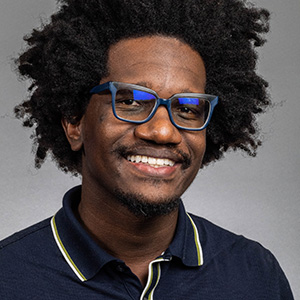Let’s make ASBMB awardees look more like BMB scientists
It’s nomination season at the American Society for Biochemistry and Molecular Biology. Nominations are being accepted until April 30 for the society’s 2025 annual awards recognizing members for their contributions to their fields, education and diversity.
And that got us thinking about awards.
As scientists, many of us don’t get a lot of recognition. We’re more accustomed to failure and rejection, from incorrect hypotheses to unsuccessful experiments to journal article rejections. We often embrace failure, knowing it’s part of the scientific and learning process.
But we always hope that one day our hard work will lead to success. And awards are an important way to acknowledge groundbreaking contributions to science. Awards recognize the scientists who have dedicated themselves to making discoveries and innovating ways to improve our lives. Awards shine a light on scientific breakthroughs and help inspire the next generation of science trainees.
There’s a downside, however. Individuals with minoritized identities were, for many years, left out of the running for awards and recognition. Women and members of historically underrepresented groups remain overlooked in some areas. And we are all accountable.
If you’ve ever nominated someone for an award, you probably thought first about your colleagues and collaborators, your mentors and mentees. All of us gravitate toward the people in our networks. While this is a wonderful way to recognize deserving people, it often leaves others out, especially when our networks are homogeneous or nondiverse.
Research has shown external recognition contributes to a person’s ability to earn tenure and promotion, and achieve other notable milestones, including receiving more awards. Therefore, we must use inclusive and equitable practices when nominating and evaluating individuals for awards.
The last thing we want to do is add something else to your plate. But, in the broad scheme of things, nominating a colleague could have a significantly positive impact on their career trajectory, so isn’t it worth it? The answer is yes. Consider nominating a scientist you know for an ASBMB award. And think about going outside your usual network to identify someone worthy of recognition.
You don’t need to do this alone. Ask a colleague to help you formulate a nomination letter and prepare documents. This will make it easier to get that nomination in by the April 30 deadline —and likely improve its quality.
Let’s celebrate the amazing advances in biochemistry and molecular biology and the diverse scientists who work in this field by nominating our deserving colleagues for ASBMB awards.
Enjoy reading ASBMB Today?
Become a member to receive the print edition four times a year and the digital edition monthly.
Learn moreFeatured jobs
from the ASBMB career center
Get the latest from ASBMB Today
Enter your email address, and we’ll send you a weekly email with recent articles, interviews and more.
Latest in Opinions
Opinions highlights or most popular articles

Sketching, scribbling and scicomm
Graduate student Ari Paiz describes how her love of science and art blend to make her an effective science communicator.

Embrace your neurodivergence and flourish in college
This guide offers practical advice on setting yourself up for success — learn how to leverage campus resources, work with professors and embrace your strengths.

Survival tools for a neurodivergent brain in academia
Working in academia is hard, and being neurodivergent makes it harder. Here are a few tools that may help, from a Ph.D. student with ADHD.

Hidden strengths of an autistic scientist
Navigating the world of scientific research as an autistic scientist comes with unique challenges —microaggressions, communication hurdles and the constant pressure to conform to social norms, postbaccalaureate student Taylor Stolberg writes.

Black excellence in biotech: Shaping the future of an industry
This Black History Month, we highlight the impact of DEI initiatives, trailblazing scientists and industry leaders working to create a more inclusive and scientific community. Discover how you can be part of the movement.

Attend ASBMB’s career and education fair
Attending the ASBMB career and education fair is a great way to explore new opportunities, make valuable connections and gain insights into potential career paths.


